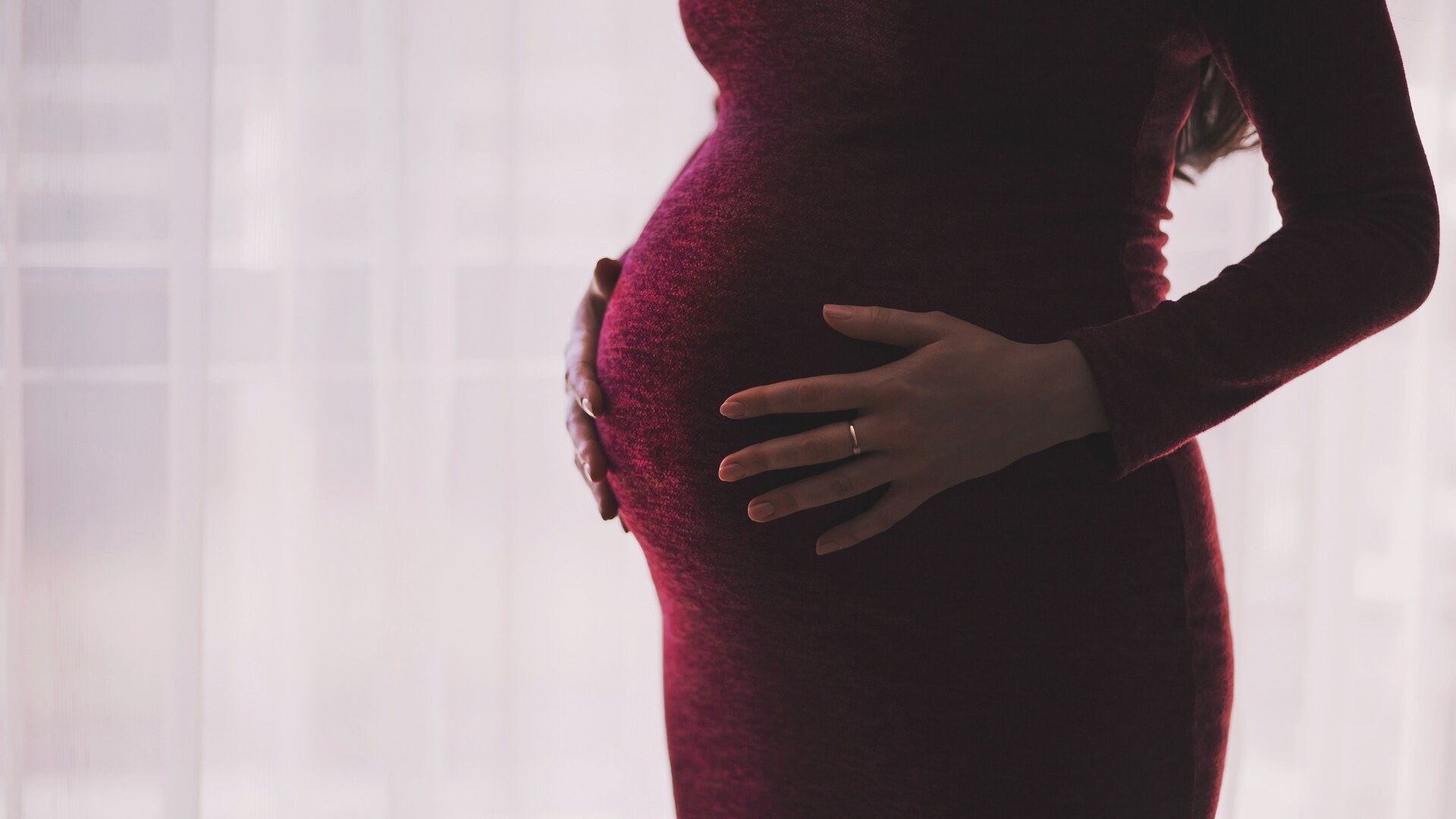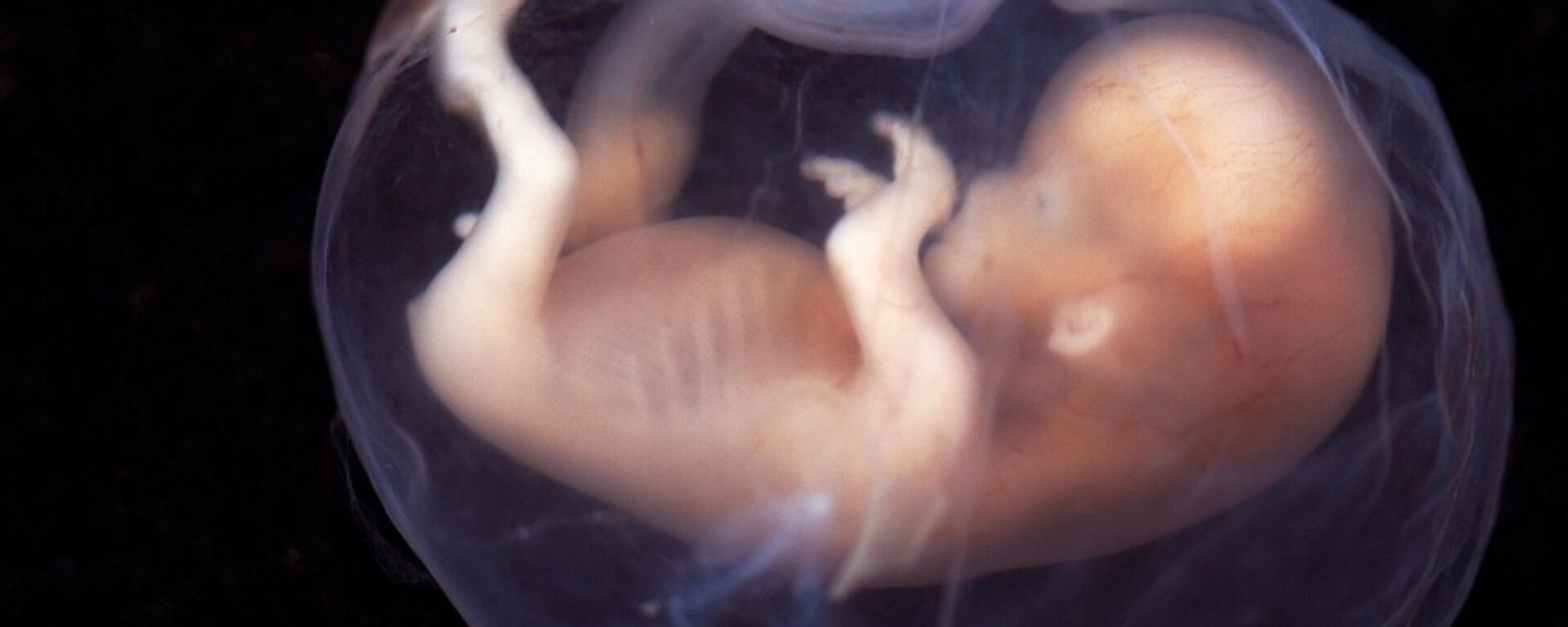https://sputnikglobe.com/20220922/unborn-babies-can-react-to-food-their-mothers-eat-study-say-1101093705.html
Unborn Babies Can React to Food Their Mothers Eat, Study Says
Unborn Babies Can React to Food Their Mothers Eat, Study Says
Sputnik International
Researchers have suggested that subjecting babies to certain flavors in utero may possibly influence their responses to the flavors when they are born. 22.09.2022, Sputnik International
2022-09-22T15:13+0000
2022-09-22T15:13+0000
2022-09-22T15:44+0000
science & tech
fetus
mother
food
taste
reaction
https://cdn1.img.sputnikglobe.com/img/104506/55/1045065557_0:100:1921:1180_1920x0_80_0_0_514742e818a199f4f66cf3dee659ca4a.jpg
Researchers from Durham University in the UK postulate that unborn babies may exhibit different reactions depending on what their mothers eat.According to Sky News, the researchers performed 4D ultrasounds of pregnant women at 32 and 36 weeks, shortly after said women ingested tablets containing carrot or kale powder.The images procured in the process appear to show that babies whose mothers took the carrot pill made “smiling faces,” while babies whose mothers took kale pills made “crying faces,” with the infants apparently being able to taste the food by inhaling or swallowing amniotic fluid in the womb, the media outlet notes.Research co-author Professor Jackie Blissett from Aston University also toyed with the possibility that “repeated prenatal flavour exposures may lead to preferences for those flavours experienced postnatally.”"In other words, exposing the foetus to less 'liked' flavours, such as kale, might mean they get used to those flavours in utero,” Blissett elaborated. "The next step is to examine whether foetuses show less 'negative' responses to these flavours over time, resulting in greater acceptance of those flavours when babies first taste them outside of the womb."
https://sputnikglobe.com/20220530/fetus-growing-inside-40-day-old-baby-in-rare-medical-condition-stuns-parents-doctors-1095870762.html
Sputnik International
feedback@sputniknews.com
+74956456601
MIA „Rossiya Segodnya“
2022
Sputnik International
feedback@sputniknews.com
+74956456601
MIA „Rossiya Segodnya“
News
en_EN
Sputnik International
feedback@sputniknews.com
+74956456601
MIA „Rossiya Segodnya“
Sputnik International
feedback@sputniknews.com
+74956456601
MIA „Rossiya Segodnya“
science & tech, fetus, mother, food, taste, reaction
science & tech, fetus, mother, food, taste, reaction
Unborn Babies Can React to Food Their Mothers Eat, Study Says
15:13 GMT 22.09.2022 (Updated: 15:44 GMT 22.09.2022) Researchers have suggested that subjecting babies to certain flavors in utero may possibly influence their responses to the flavors when they are born.
Researchers from Durham University in the UK postulate that unborn babies may exhibit different reactions depending on what their mothers eat.
According to Sky News, the researchers performed 4D ultrasounds of pregnant women at 32 and 36 weeks, shortly after said women ingested tablets containing carrot or kale powder.
The images procured in the process appear to show that babies whose mothers took the carrot pill made “smiling faces,” while babies whose mothers took kale pills made “crying faces,” with the infants apparently being able to taste the food by inhaling or swallowing amniotic fluid in the womb, the media outlet notes.
"It was really amazing to see unborn babies' reaction to kale or carrot flavours during the scans and share those moments with their parents," postgraduate researcher and study lead Beyza Ustun said.
Research co-author Professor Jackie Blissett from Aston University also toyed with the possibility that “repeated prenatal flavour exposures may lead to preferences for those flavours experienced postnatally.”
"In other words, exposing the foetus to less 'liked' flavours, such as kale, might mean they get used to those flavours in utero,” Blissett elaborated. "The next step is to examine whether foetuses show less 'negative' responses to these flavours over time, resulting in greater acceptance of those flavours when babies first taste them outside of the womb."


